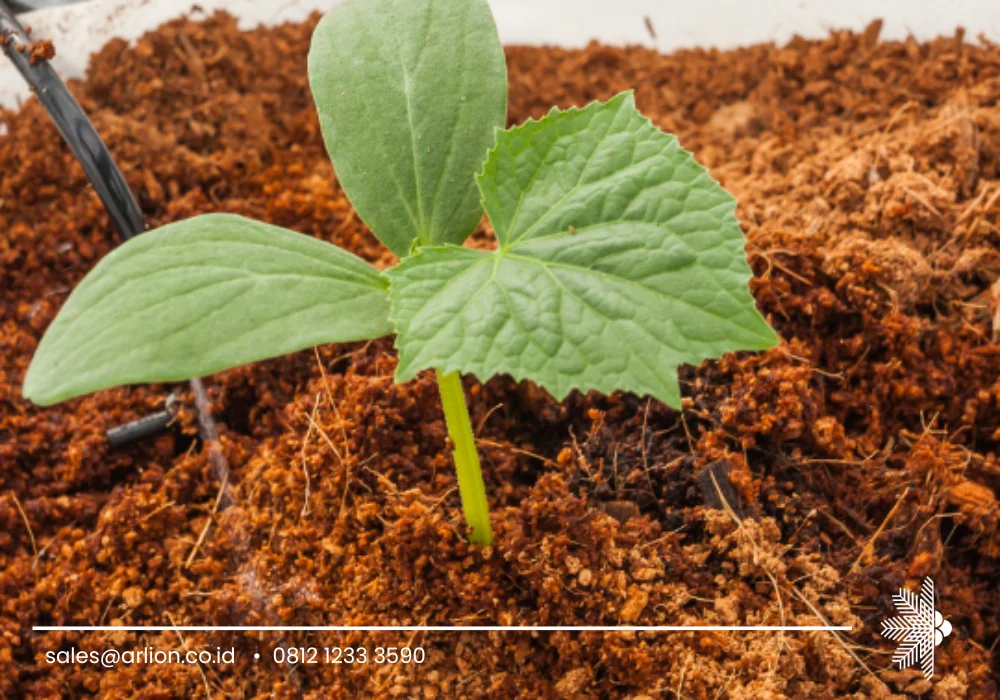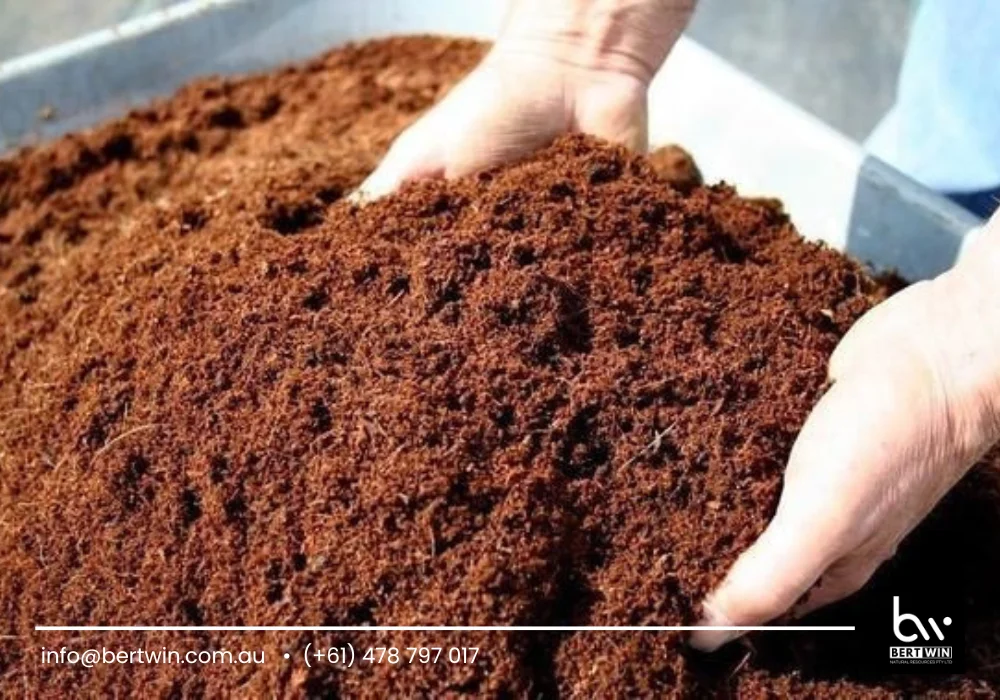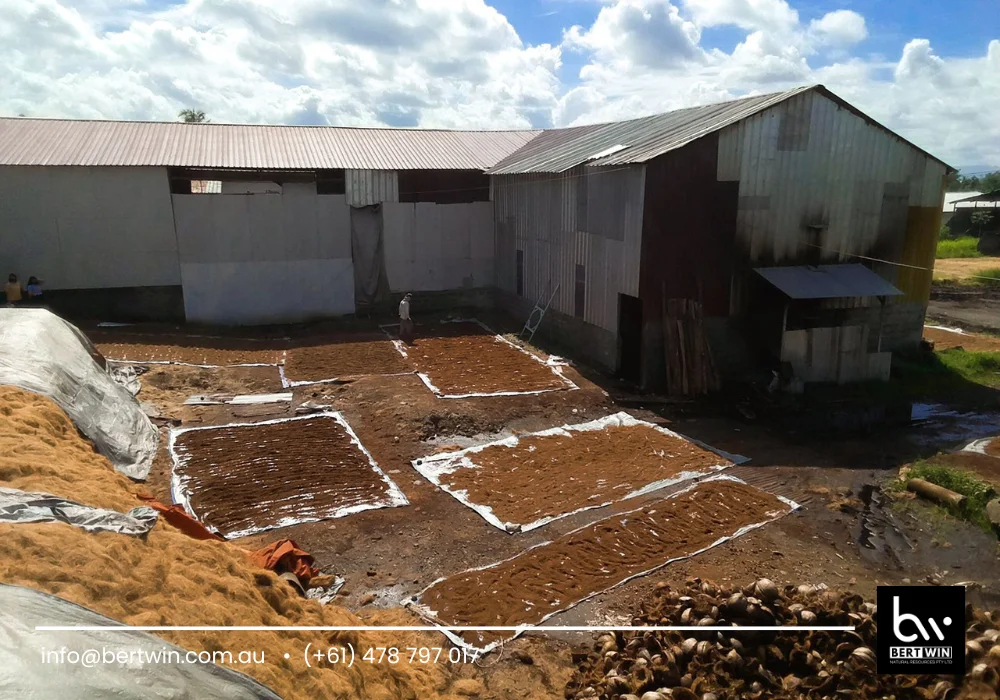Coco peat for gardening is becoming a popular choice among gardeners in Australia for its excellent benefits and eco-friendly properties. Coco peat, also known as coir pith, is a byproduct derived from the husks of coconuts. It is widely recognized for its ability to retain moisture, improve soil structure, and promote healthy plant growth. In this article, we will explore how coco peat for gardening can be utilized effectively, its benefits, and why it is an excellent choice for your garden.

What is Coco Peat?
Coco peat is a natural, biodegradable material made from the fibrous husks of coconuts. Once the coir fibers are removed from the coconut husk, the remaining pith is processed, compacted, and turned into coco peat. It has many uses in gardening, horticulture, and agriculture due to its impressive properties. Coco peat for gardening has become a staple for both professional gardeners and home gardeners, providing a sustainable and versatile growing medium.
Coco peat is particularly appreciated for its water retention, aeration properties, and ability to improve the soil structure, making it an ideal substitute for peat moss. It is an environmentally friendly option because it is made from renewable resources and is biodegradable.
Benefits of Using Coco Peat for Gardening
1. Excellent Water Retention
- Moisture Holding Capacity: One of the most significant benefits of coco peat for gardening is its ability to retain moisture. Coco peat can hold up to 10 times its weight in water, making it an ideal material for plants that require consistent moisture.
- Reduction in Watering Frequency: With its water retention properties, coco peat helps reduce the frequency of watering, especially in dry climates like those found in Australia. This can save time and effort for gardeners and reduce water consumption, promoting sustainability.
2. Improved Soil Structure and Aeration
- Soil Loosening: Coco peat for gardening helps improve the structure of the soil by loosening it. This allows plant roots to grow deeper and access more nutrients, water, and air.
- Root Health: Proper aeration is essential for healthy root systems. The airy structure of coco peat ensures that roots get adequate oxygen while preventing waterlogging and root rot, which can be caused by dense, compacted soil.
3. pH Neutral and Safe for Plants
- pH Balance: Unlike many soil amendments, coco peat for gardening is pH-neutral. This makes it safe for a wide variety of plants, as it will not alter the soil’s acidity or alkalinity, ensuring a balanced environment for plant growth.
- Non-Toxic: Coco peat does not contain harmful chemicals or toxins, making it safe for both plants and the environment. It is an ideal material for organic gardening, as it ensures that no harmful substances are added to the soil.
4. Lightweight and Easy to Handle
- Convenience: Coco peat is lightweight, making it easy to transport, handle, and store. This is particularly beneficial for gardeners who need to move large quantities of soil or potting mixes.
- Easy to Mix: It can be easily mixed with other soil amendments, such as compost, perlite, or vermiculite, to create a customized potting mix that suits the specific needs of different plants.
5. Sustainable and Eco-Friendly
- Renewable Resource: Coco peat is made from coconut husks, which are a renewable resource. Using coco peat helps reduce the environmental impact associated with non-renewable materials like peat moss, which is often harvested from ecologically sensitive bogs.
- Biodegradable: Being a natural product, coco peat is biodegradable, ensuring that it breaks down over time without leaving any harmful residues in the soil. It provides a sustainable, eco-friendly option for gardeners looking to reduce their environmental footprint.
How to Use Coco Peat for Gardening

1. Preparing Coco Peat
- Hydration: Coco peat is often sold in compressed blocks or bricks. Before using it, you need to hydrate it by soaking it in water. The compressed block will expand significantly, making it easier to mix with other materials.
- Rinsing: It is advisable to rinse coco peat before use to remove excess salts that may be present. This will help prevent any salt buildup in the soil, which could harm plants over time.
2. Using Coco Peat for Potting Mix
- Mixing with Other Components: For potting mixes, you can combine coco peat with other materials like perlite, vermiculite, and compost to improve drainage, aeration, and nutrient content. A common recipe is to mix 60% coco peat, 30% perlite, and 10% compost.
- Repotting: Coco peat is a great option for repotting plants, as it promotes healthy root development and provides a balanced environment for the plant to thrive.
3. Using Coco Peat in Raised Beds or Garden Beds
- Soil Amendment: Coco peat can be mixed directly into garden beds or raised beds to improve soil texture and enhance water retention. It helps prevent the soil from becoming compacted and encourages better root penetration for vegetables, flowers, and shrubs.
- Improved Drainage: Mixing coco peat with heavy or clayey soils improves drainage, preventing waterlogging and promoting healthier plant roots.
4. Using Coco Peat for Seed Starting
- Ideal for Germination: Coco peat provides an excellent environment for seed germination. It helps maintain consistent moisture levels while allowing seeds to breathe and develop strong roots.
- Moisture Control: Because coco peat retains moisture, it ensures that seeds remain hydrated, which is essential for successful germination.

Conclusion
Coco peat for gardening offers numerous advantages for both amateur and professional gardeners in Australia. From improving soil structure and moisture retention to providing an eco-friendly alternative to traditional materials, coco peat is a versatile and sustainable option for gardeners. Its ability to support plant growth, combined with its sustainability, makes it an essential resource for environmentally conscious gardening practices.
For further information, you may contact WhatsApp at (+61) 478797017 or via email at info@bertwin.com.au.
Read More : 6 Reasons Why Coco Peat 25 Kg is the Best Choice for Your Garden
